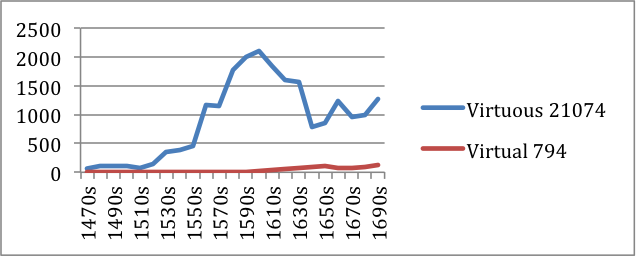25.6: Try It: Verbs
- Page ID
- 257063
\( \newcommand{\vecs}[1]{\overset { \scriptstyle \rightharpoonup} {\mathbf{#1}} } \)
\( \newcommand{\vecd}[1]{\overset{-\!-\!\rightharpoonup}{\vphantom{a}\smash {#1}}} \)
\( \newcommand{\id}{\mathrm{id}}\) \( \newcommand{\Span}{\mathrm{span}}\)
( \newcommand{\kernel}{\mathrm{null}\,}\) \( \newcommand{\range}{\mathrm{range}\,}\)
\( \newcommand{\RealPart}{\mathrm{Re}}\) \( \newcommand{\ImaginaryPart}{\mathrm{Im}}\)
\( \newcommand{\Argument}{\mathrm{Arg}}\) \( \newcommand{\norm}[1]{\| #1 \|}\)
\( \newcommand{\inner}[2]{\langle #1, #2 \rangle}\)
\( \newcommand{\Span}{\mathrm{span}}\)
\( \newcommand{\id}{\mathrm{id}}\)
\( \newcommand{\Span}{\mathrm{span}}\)
\( \newcommand{\kernel}{\mathrm{null}\,}\)
\( \newcommand{\range}{\mathrm{range}\,}\)
\( \newcommand{\RealPart}{\mathrm{Re}}\)
\( \newcommand{\ImaginaryPart}{\mathrm{Im}}\)
\( \newcommand{\Argument}{\mathrm{Arg}}\)
\( \newcommand{\norm}[1]{\| #1 \|}\)
\( \newcommand{\inner}[2]{\langle #1, #2 \rangle}\)
\( \newcommand{\Span}{\mathrm{span}}\) \( \newcommand{\AA}{\unicode[.8,0]{x212B}}\)
\( \newcommand{\vectorA}[1]{\vec{#1}} % arrow\)
\( \newcommand{\vectorAt}[1]{\vec{\text{#1}}} % arrow\)
\( \newcommand{\vectorB}[1]{\overset { \scriptstyle \rightharpoonup} {\mathbf{#1}} } \)
\( \newcommand{\vectorC}[1]{\textbf{#1}} \)
\( \newcommand{\vectorD}[1]{\overrightarrow{#1}} \)
\( \newcommand{\vectorDt}[1]{\overrightarrow{\text{#1}}} \)
\( \newcommand{\vectE}[1]{\overset{-\!-\!\rightharpoonup}{\vphantom{a}\smash{\mathbf {#1}}}} \)
\( \newcommand{\vecs}[1]{\overset { \scriptstyle \rightharpoonup} {\mathbf{#1}} } \)
\( \newcommand{\vecd}[1]{\overset{-\!-\!\rightharpoonup}{\vphantom{a}\smash {#1}}} \)
\(\newcommand{\avec}{\mathbf a}\) \(\newcommand{\bvec}{\mathbf b}\) \(\newcommand{\cvec}{\mathbf c}\) \(\newcommand{\dvec}{\mathbf d}\) \(\newcommand{\dtil}{\widetilde{\mathbf d}}\) \(\newcommand{\evec}{\mathbf e}\) \(\newcommand{\fvec}{\mathbf f}\) \(\newcommand{\nvec}{\mathbf n}\) \(\newcommand{\pvec}{\mathbf p}\) \(\newcommand{\qvec}{\mathbf q}\) \(\newcommand{\svec}{\mathbf s}\) \(\newcommand{\tvec}{\mathbf t}\) \(\newcommand{\uvec}{\mathbf u}\) \(\newcommand{\vvec}{\mathbf v}\) \(\newcommand{\wvec}{\mathbf w}\) \(\newcommand{\xvec}{\mathbf x}\) \(\newcommand{\yvec}{\mathbf y}\) \(\newcommand{\zvec}{\mathbf z}\) \(\newcommand{\rvec}{\mathbf r}\) \(\newcommand{\mvec}{\mathbf m}\) \(\newcommand{\zerovec}{\mathbf 0}\) \(\newcommand{\onevec}{\mathbf 1}\) \(\newcommand{\real}{\mathbb R}\) \(\newcommand{\twovec}[2]{\left[\begin{array}{r}#1 \\ #2 \end{array}\right]}\) \(\newcommand{\ctwovec}[2]{\left[\begin{array}{c}#1 \\ #2 \end{array}\right]}\) \(\newcommand{\threevec}[3]{\left[\begin{array}{r}#1 \\ #2 \\ #3 \end{array}\right]}\) \(\newcommand{\cthreevec}[3]{\left[\begin{array}{c}#1 \\ #2 \\ #3 \end{array}\right]}\) \(\newcommand{\fourvec}[4]{\left[\begin{array}{r}#1 \\ #2 \\ #3 \\ #4 \end{array}\right]}\) \(\newcommand{\cfourvec}[4]{\left[\begin{array}{c}#1 \\ #2 \\ #3 \\ #4 \end{array}\right]}\) \(\newcommand{\fivevec}[5]{\left[\begin{array}{r}#1 \\ #2 \\ #3 \\ #4 \\ #5 \\ \end{array}\right]}\) \(\newcommand{\cfivevec}[5]{\left[\begin{array}{c}#1 \\ #2 \\ #3 \\ #4 \\ #5 \\ \end{array}\right]}\) \(\newcommand{\mattwo}[4]{\left[\begin{array}{rr}#1 \amp #2 \\ #3 \amp #4 \\ \end{array}\right]}\) \(\newcommand{\laspan}[1]{\text{Span}\{#1\}}\) \(\newcommand{\bcal}{\cal B}\) \(\newcommand{\ccal}{\cal C}\) \(\newcommand{\scal}{\cal S}\) \(\newcommand{\wcal}{\cal W}\) \(\newcommand{\ecal}{\cal E}\) \(\newcommand{\coords}[2]{\left\{#1\right\}_{#2}}\) \(\newcommand{\gray}[1]{\color{gray}{#1}}\) \(\newcommand{\lgray}[1]{\color{lightgray}{#1}}\) \(\newcommand{\rank}{\operatorname{rank}}\) \(\newcommand{\row}{\text{Row}}\) \(\newcommand{\col}{\text{Col}}\) \(\renewcommand{\row}{\text{Row}}\) \(\newcommand{\nul}{\text{Nul}}\) \(\newcommand{\var}{\text{Var}}\) \(\newcommand{\corr}{\text{corr}}\) \(\newcommand{\len}[1]{\left|#1\right|}\) \(\newcommand{\bbar}{\overline{\bvec}}\) \(\newcommand{\bhat}{\widehat{\bvec}}\) \(\newcommand{\bperp}{\bvec^\perp}\) \(\newcommand{\xhat}{\widehat{\xvec}}\) \(\newcommand{\vhat}{\widehat{\vvec}}\) \(\newcommand{\uhat}{\widehat{\uvec}}\) \(\newcommand{\what}{\widehat{\wvec}}\) \(\newcommand{\Sighat}{\widehat{\Sigma}}\) \(\newcommand{\lt}{<}\) \(\newcommand{\gt}{>}\) \(\newcommand{\amp}{&}\) \(\definecolor{fillinmathshade}{gray}{0.9}\)Read the following introduction to an academic paper written by an undergraduate linguistics student. Look at the verb usage (both regular verbs and non-finite verbs). Identify any errors that have been made, and suggest revisions. The sentences have been numbered to aid you in your comments.
(1) Early Modern English, the language spoke by Shakespeare and Queen Elizabeth I, existed during a period of rich language change and growth. (2) Vast amounts of words were borrowed into English from Latinate languages (such as French and Spanish). (3) English words were taking Latinate suffixes and adding them to words, so they could better to fit the needs of the people.
 (4) Derivational doublets is word pairs from Early Modern English that have the same root word but have different suffixes. (5) Take the words virtuous and virtual, for example. (6) Both words come from the word virtue, but they had different suffixes (-uous and –ual) applied to them. (7) This paper will examine the usage of these doublets in Early Modern English, and it briefly looks at how these words have changing in our modern usage.
(4) Derivational doublets is word pairs from Early Modern English that have the same root word but have different suffixes. (5) Take the words virtuous and virtual, for example. (6) Both words come from the word virtue, but they had different suffixes (-uous and –ual) applied to them. (7) This paper will examine the usage of these doublets in Early Modern English, and it briefly looks at how these words have changing in our modern usage.
[practice-area rows=”4″][/practice-area]
[reveal-answer q=”789311″]Show Answer[/reveal-answer]
[hidden-answer a=”789311″]
In sentence 1, spoke is part of an elided passive construction (the full phrase would be “the language that was spoke”), so the simple past tense is incorrect here: you should use the past participle spoken: “Early Modern English, the language spoken by Shakespeare and Queen Elizabeth I. . .”
In sentence 3, the to-infinitive to fit is used following the helping verb could. However, you don’t use to-infinitives with the verb could. The sentence should read “. . . they could better fit the needs of the people.”
Sentence 4 does not agree. The verb is is singular while the subject doublets is plural. You should use the verb are instead: “Derivational doublets are word pairs from Early Modern English. . .”
In sentence 6, come and had don’t agree. The words were created in the past, but they are formed the same way now, so you can use either tense. The verb applied is a past participle (it’s part of the elided passive phrase “that were applied”), so it doesn’t change:
- Both words came from the word virtue, but they had different suffixes (-uous and –ual) applied to them.
- Both words come from the word virtue, but they have different suffixes (-uous and –ual) applied to them.
Sentence 7 shifts tenses. The verb looks is present tense while will examine is future tense. Since we are at the beginning of the paper, the future tense is a better choice (though the present tense is also acceptable. The phrase have changing is not grammatically sound: it mixes the continuous and perfect tenses together. The verb to have needs the past participle (changed) and the present participle (changing) needs to have. In this instance, the past perfect (have changed) is the best tense:
- This paper will examine the usage of these doublets in Early Modern English, and it will briefly look at how these words have changed in our modern usage.
[/hidden-answer]
- Try It: Verbs. Provided by: Lumen Learning. License: CC BY: Attribution
- Modification of Derivational Doublets (errors added). Authored by: Vallerie Mott. License: CC BY: Attribution
- Image of Queen Elizabeth I. Authored by: William Scrots. Located at: https://commons.wikimedia.org/wiki/File:Elizabeth_I_when_a_Princess.jpg. License: Public Domain: No Known Copyright

